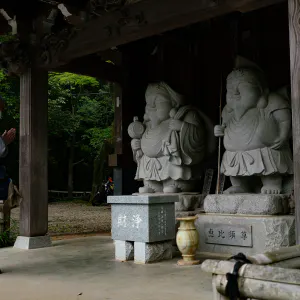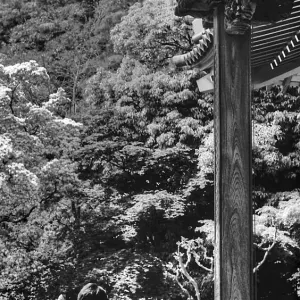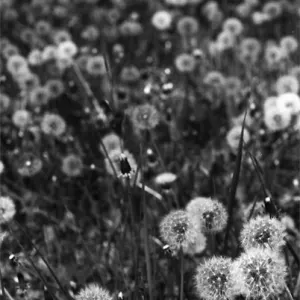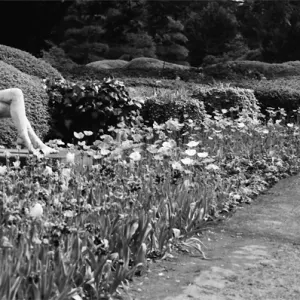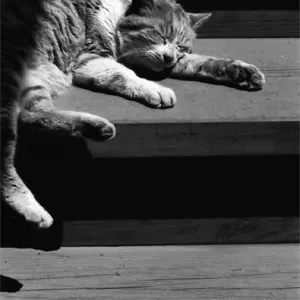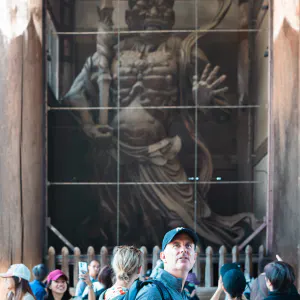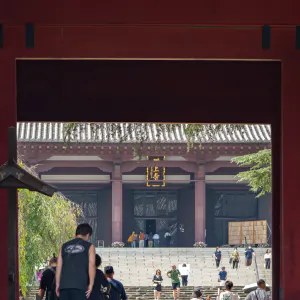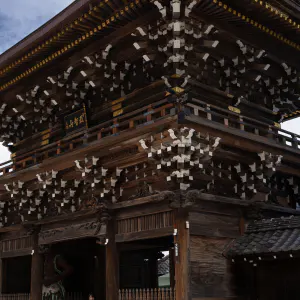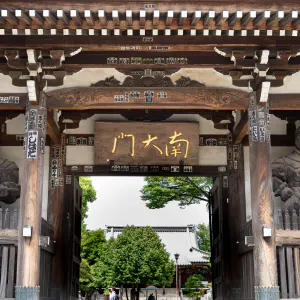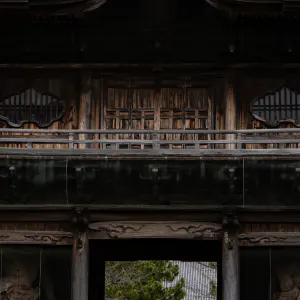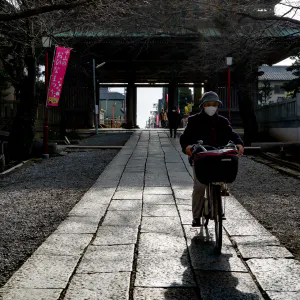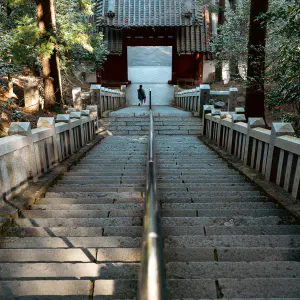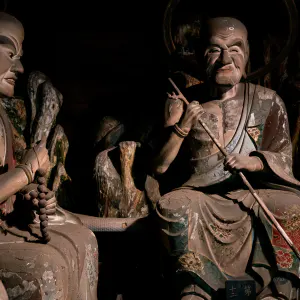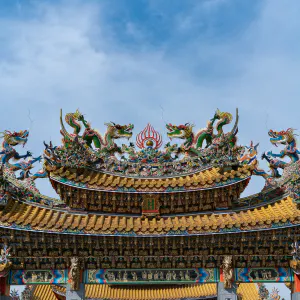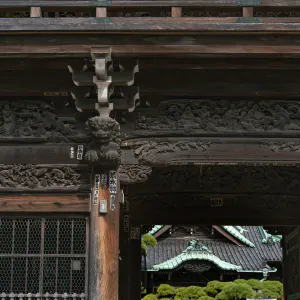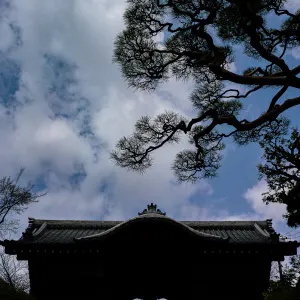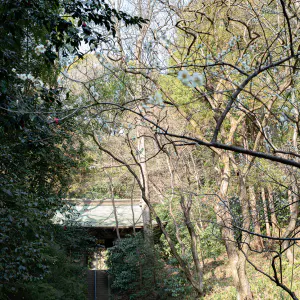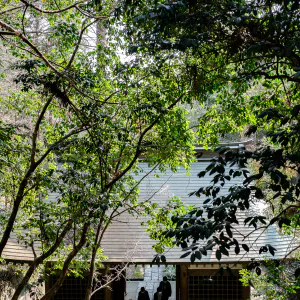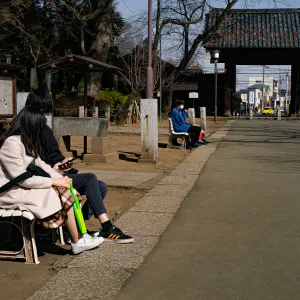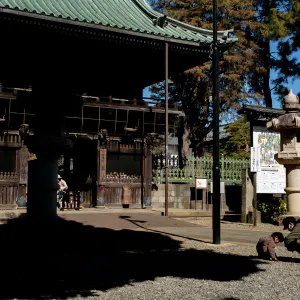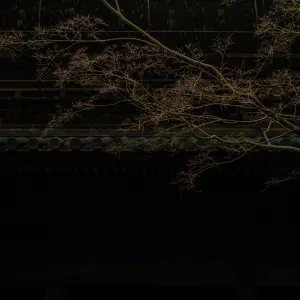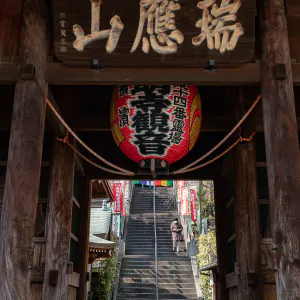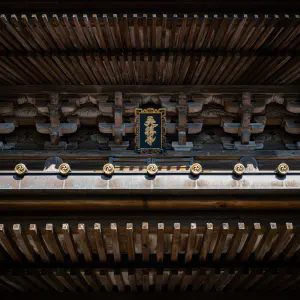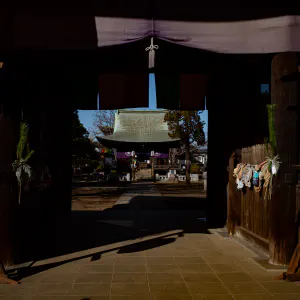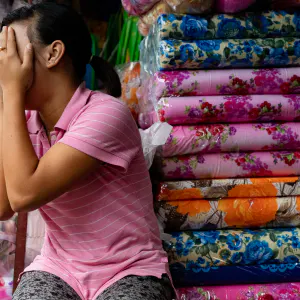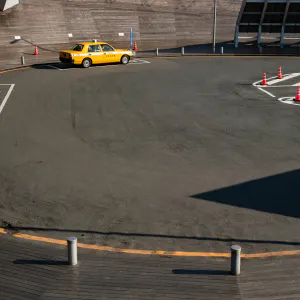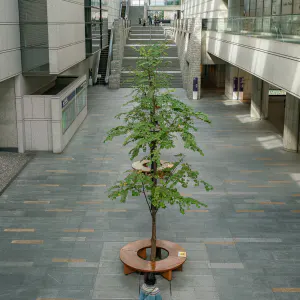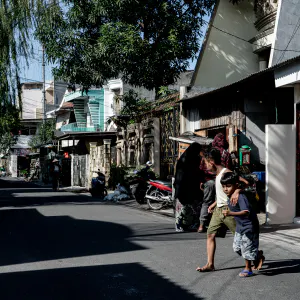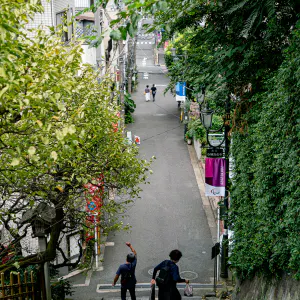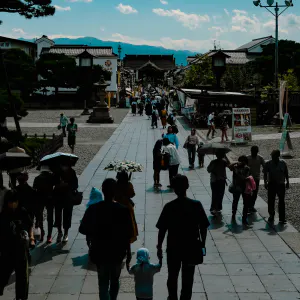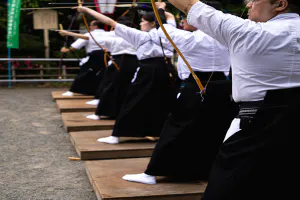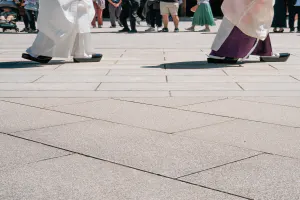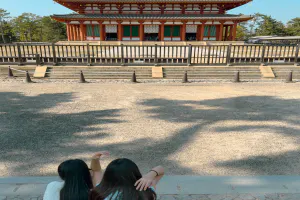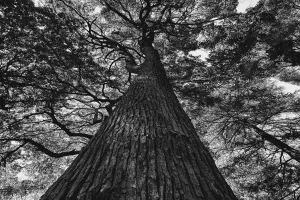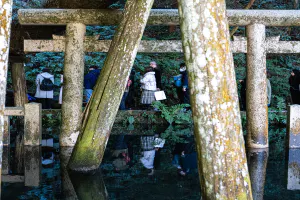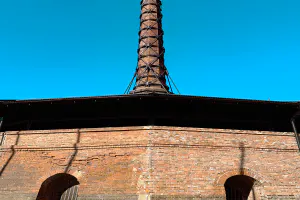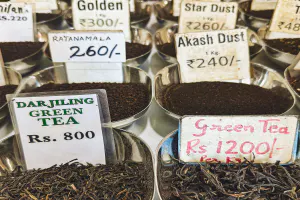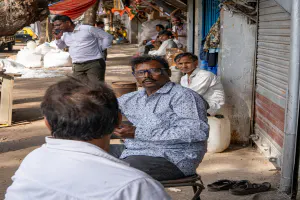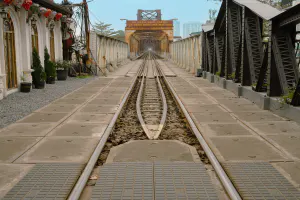The Ryugumon Gate, reminiscent of the Ryugu-jo Palace, is exotic because it originated in China
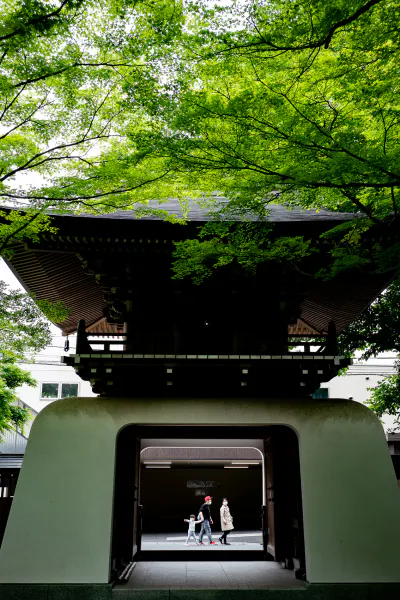
The Fuda Tenjinja Shrine in Chofu, where Gegege no Kitaro once lived behind the shrine, is an old shrine mentioned in the Engishiki. When I visited, there were many people visiting the shrine to pray. The well-maintained shrine grounds did not give the impression that Kitaro lived there. Perhaps I am prejudiced, but the shrine is so well maintained that it seems to actively exclude people like Kitaro, whose occupation is unknown and unidentifiable. This seems to be incompatible with the gray zone in the world.
As I left Fuda Tenjinja Shrine and headed toward Chofu Station, I immediately noticed a structure that caught my attention. It is the gate of a temple called Taisho-ji Temple, and it has a unique shape. It is called "Ryugumon," which is reminiscent of the gate to Ryugu-jo (the Dragon's Palace) in the story of Urashima Taro. This type of gate is not entirely unique, but it is not often seen in the suburbs of Tokyo.
The Ryugumon gate is not only unusual but also exotic. It reminds me of Urashima Taro's Ryugu-jo (Dragon's Palace), and at the same time it reminds me of China. I have long wondered why this is so, and it seems that I was not mistaken, since this style of architecture was adopted from Chinese architecture. It was originally the style of the Obaku sect of Zen Buddhism, but when it was introduced to Japan, it was adopted by other sects because of its uniqueness. Certainly, Taisho-ji Temple, where this gate stands, was not a temple of the Obaku sect, but of the Shingi Shingon sect. If a temple does not have such a relaxed attitude, it will not be interesting for those who come to Japan for sightseeing.
| Aug 2022 ARCHITECTURE TOKYO | |
| CHOFU GATE TEMPLE |
PHOTO DATA
No
12340
Shooting Date
May 2022
Posted On
August 3, 2022
Modified On
August 11, 2023
Place
Chofu, Tokyo
Genre
Architectural Photography
Camera
SONY ALPHA 7R II
Lens
ZEISS LOXIA 2/35
